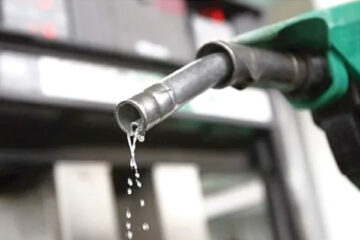
Naira and Dollars transaction
The naira plunged to a record low of N925/$1 on the parallel market yesterday as demand for foreign currency outstripped supply.
This is the aftermath of liberalising the foreign exchange regime, which is a clear departure of what obtained during the President Muhammadu Buhari- led administration.
At a time during the last administration, the World Bank and other agencies, as well as experts in banking, finance and economy had at different times said having official and parallel value for the naira was hurting the economy and at the same time making a few privileged people pocketing billions of dollars without producing anything as they get the forex from the CBN at official rate and instantly sell same at the black market.
Recall that during his inauguration on May 29, 2023, President Tinubu had said, “Monetary policy needs a thorough house cleaning. The Central Bank must work towards a unified exchange rate. This will direct funds away from arbitrage into meaningful investment in the plant, equipment and jobs that power the real economy.”
On June 14, 2023, the CBN abolished the segmentation of the forex market into different windows and told Deposit Money Banks to freely float the naira against the dollar and other international currencies.
Buyers and sellers of foreign currency in the official FX market were then allowed to quote their preferred rates, as against previous practice where CBN dictated rates.
Wittingly or unwittingly, naira has since continued on a free fall at the parallel market despite the move.
When Daily Trust reached out to forex traders in Abuja yesterday, they quoted the exchange rate as high as N915/$1 for cash trades.
Similarly, the dollar exchanged for between N880 and N890 in Lagos, the commercial capital of Nigeria.
Daily Trust’s reporter who monitored the situation at the Murtala Muhammed International Airport, Ikeja as well as Allen Junction, noticed that the greenback was bought for as high as N890 by Bureau De Change operators in the state. However, the operators sold it for between N900 and N905.
An operator at Allen Roundabout in Lagos, Ismail Muhammed said: “The dollar has not reached N900 in Lagos. We are buying for N890 at the moment”.
In Kano, Daily Trust gathered that while the parallel market closed on Tuesday with a dollar trading to a naira at N900, it opened at N919 to a dollar on Wednesday as against the N750.2/dollar at the I&E market, signifying a gap of about N169 between the parallel market and the I&E market.
However, it was gathered that around 1pm, the price further surged in Kano’s Wapa Forex Market to N925 to a dollar.
Meanwhile, in the official Investor and Exporter Window, the exchange rate closed at N757.81/$1 while the NAFEX rate was N776. The official market also faces supply constraints, with daily turnover averaging $80 million since July.
The peer-to-peer market, where cryptocurrency traders exchange forex, also saw the exchange rate soar above N900/$1.
The exchange rate between the naira and dollar has weakened by 19.8% since the reunification of the exchange rate windows. This compares to a depreciation of 2.5% between January 1 and June 14th (before the unification). The exchange rate weakened by 22.9% in the whole of 2022.
The disparity is now N153/$1, one of the widest since the unification of the naira on June 14th, 2023.
The naira has been under pressure in the parallel market for several weeks, as the supply of forex from official sources remains inadequate.
On July 1st, the beginning of the second half of the year, the exchange rate in the parallel market was around N772/$1.
However, a surge in demand from various segments of the economy, such as importers, foreign travellers and speculators, has triggered exchange rate volatility.











